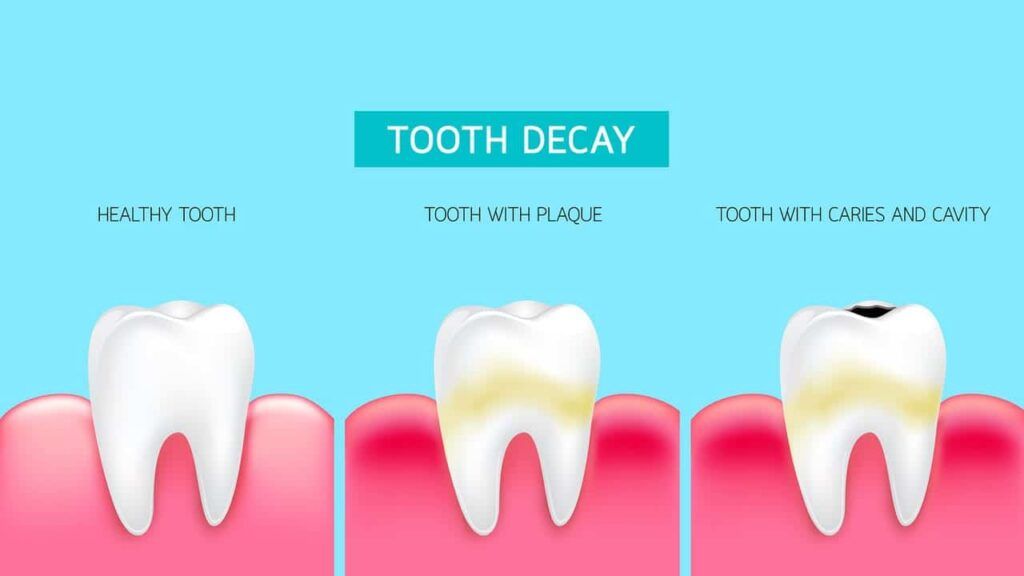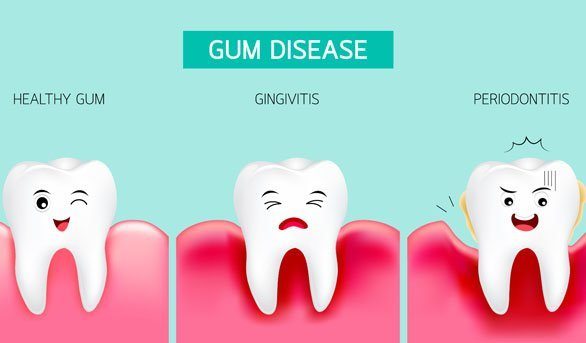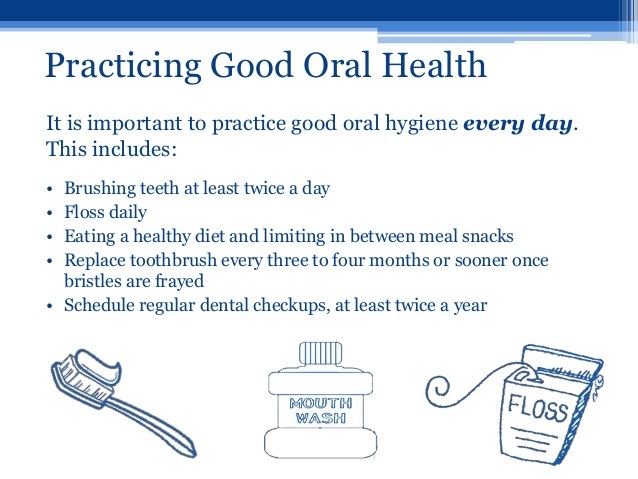Regarding our health, we often hear about our heart health and the importance of our cardiovascular systems, our lungs and the importance of the respiratory systems, our pancreas and the endocrine system, kidneys and the urinary system, the colon and digestive systems. But, what about our teeth? For some reason, we don’t hear as much about these organs or how to care for them. This article is all about dental care.
Are teeth bone or an organ? To dispel a popular myth, the teeth are not bone. They have their own specialized type of connective tissue. The teeth are made up of three types of tissue: enamel, dentin, and cementum (a specialized type of bone). The common definition of an organ is a collection of tissues that act together to execute a purpose or purposes. By that definition, teeth are organs.
But for the record, bones, additionally, are organs of the skeletal system. They are made up of calcified osseous tissue, connective tissues of various sorts, and cartilage.
The Importance of Good Dental Care
The importance of good dental care and overall oral health is crucial for the overall health of the entire body. In fact, the mouth is said to be the gateway to general good health. Not taking care of our teeth and gums properly may well lead to a variety of health problems. This can range from gum disease and the loss of teeth to heart disease and diabetes. Therefore, oral health is crucial.
For example, recent research is linking associations between chronic oral infections and heart and lung diseases, stroke, and low-birth-weight, premature births. Associations connecting periodontal disease and diabetes have long been noted.
Consequently, oral health is essential to general health. We cannot be healthy without oral good health. Oral and general health should not be interpreted as separate entities. Oral health is a vital component of health and must be integrated with the provision of health care and the design of community programs.
What is Oral Health?
Oral references the mouth which not only includes the teeth and the gums (gingiva) and their supporting tissues, but also the hard and soft palate, the mucosal lining (mucous membrane) of the mouth and throat, the tongue, the lips, the salivary glands, the chewing muscles, and the upper and lower jaws. Similarly important are the branches of the nervous, immune, and vascular systems that stimulate, safeguard, and nurture the oral tissues, as well as provide connections to the brain and the rest of the body.
The genetic patterning of development in the uterus further reveals the intimate relationship of the oral tissues to the developing brain and to the tissues of the face and head that surround the mouth, structures whose location is captured in the word craniofacial which is specialized dentistry.
Therefore, good oral health means so much more than healthy teeth. It means the absence of chronic oral-facial pain situations, oral and pharyngeal (throat) cancers, oral soft tissue lesions, birth defects such as cleft lip and palate, and other numerous diseases and disorders that influence the oral, dental, and craniofacial tissues, collectively known as the craniofacial complex. These are tissues whose functions are often taken for granted, yet they represent the very fundamental nature of our humanity. They permit us to speak and smile; sigh and kiss; smell, taste, touch, chew, and swallow; cry out in pain; and convey a world of feelings and emotions through facial expressions. They also protect against microbial infections and environmental assault.
Poor oral health can lead to conditions that can lead to serious consequences.
Conditions of the Mouth
Tooth Decay – Also known as Dental Decay. Dental decay occurs when the enamel and dentine of a tooth become softened by an acid attack after eating or drinking anything containing sugars. Enamel is the solid, protective outer coating of the tooth and is the hardest part of the body. It does not contain any nerves or blood vessels and is not sensitive to pain. Dentine lays under the enamel, developing most of the tooth, and it can be extremely sensitive to pain. Dentine envelops the central ‘pulp’ of the tooth. The pulp is a soft tissue that contains blood vessels and nerves and is in the middle of the tooth.
Dental decay is initially caused by plaque acids that gradually dissolve away

the enamel and dentine of the tooth. Plaque is a thin, sticky film that keeps forming on your teeth. It contains many types of bacteria.
Every time anything containing sugars either by food or drink is consumed, these acids attack the teeth and start to soften and dissolve the enamel. These attacks can occur for up to an hour after eating or drinking before the natural salts in the saliva cause the enamel to ‘remineralize’ and harden again.
Over time, the acid makes a cavity (hole) in the tooth. This condition is also known as ‘dental caries’. This Decay damages the teeth and may lead to the tooth requiring a filling or even extraction.
Keep in mind that it’s not only sugars that are harmful, but other types of carbohydrate foods and drinks react with the plaque and form these acids. (This includes the ‘fermentable’ carbohydrates: for example ‘concealed sugars’ in processed food, organic sugars like those in fruit and cooked starches).
It’s wise to always check the ingredients. Generally, anything with the suffix ‘ose’ in the name is sugar, for example, sucrose, maltose, and so on.
We must watch those in-between-meal treats. Consuming sugary or acidic snacks and drinks between meals can increase the risk of decay because the teeth then come under constant attack and do not have time to recover. Therefore it is important not to continually have sugary snacks or sip sugary drinks during the day.
Gum Disease – Gum disease is identified as swelling, soreness, or infection of the tissues sustaining the teeth. There are two principal forms of gum disease: gingivitis and periodontal disease.

*Gingivitis means ‘inflammation of the gums’. This is apparent when the gums around the teeth grow to be very red and swollen. Often the swollen gums bleed during brushing.
Periodontal disease
is the result of long-standing gingivitis. There are several types of periodontal disease and they all have an effect on the tissues supporting the teeth. As the disease progresses the bone securing the teeth in the jaw is lost, causing the teeth to become loose. Without treatment, the teeth may ultimately fall out.
Sensitive Teeth – Having sensitive teeth can range from getting a gentle twinge to experiencing serious discomfort that can last for several hours. It can additionally be an early warning sign of more acute dental problems.
Individuals are more likely to feel the sensitivity when drinking or eating cold items, from cold air catching your teeth, and sometimes with hot foods or drinks. Some individuals experience sensitivity when they have sweet or acidic food and drinks. The pain and discomfort can be intermittent, with sometimes being more apparent than others.
Sensitive teeth can start at any time. However, it is more common in individuals aged between 20 and 40, although it can affect individuals in their early teens as well as when they are over 70. Women are more probable to be affected than men.
Sensitive teeth occur when the outer part of the tooth that we can see has a layer of enamel that protects the softer dentine underneath. When the dentine becomes exposed, a tooth can become sensitive. This generally occurs where the tooth and the gum meet where the enamel layer is much thinner. Below are some of the causes of sensitivity:
- Brushing too hard (‘toothbrush abrasion’), and brushing from side to side, can result in the enamel being worn away – especially where the teeth and the gums meet. The newly exposed dentine may then become sensitive.
- Dental erosion: this is the loss of tooth enamel caused by attacks of acid from acidic food and drinks as mentioned above. If the enamel is worn down, the dentine underneath becomes exposed and lead to sensitivity. Gums then may naturally recede (shrink back), and the roots of the teeth will become exposed causing them to be more sensitive. Unfortunately, root surfaces do not have an enamel layer to protect them.
- Gums may naturally recede (shrink back ), and the roots of the teeth will become exposed and can be more sensitive. Root surfaces do not have an enamel layer to protect them.
- Gum disease: a build-up of plaque or tartar can result in the gum receding down the tooth and even destroy the bone support of the tooth. Pockets can develop in the gums around the tooth, making the area challenging to keep clean and the issue worse.
- Tooth grinding: this is a habit that involves clenching and grinding the teeth together. This can cause the enamel of the teeth to be worn away, causing them to become sensitive.
- A cracked tooth or filling: a cracked tooth is one that has been broken.
- Tooth bleaching: some patients have sensitivity for a short time during or after bleaching. It is best to talk to your dental professional about this before having treatment.
Other conditions include: knocked out teeth, lichen planus (white patches in the lining of the mouth), geographic tongue, dry mouth, mouth ulcers, mouth cancer, jaw problems, and headaches.
Any of these conditions can be treated with the aid of a dental professional. When a problem with any area of the mouth, it is best to consult such an individual.
The importance of Good Oral Health
For starters, good dental hygiene keeps the teeth and gums healthy. Although genetics can play a large role in the acquiring of cavities, regular brushing and preventative dental care help keep the teeth and gums healthy. Brushing removes the plaque that causes tooth decay and stimulates the gums to help prevent gum disease.
Additionally, recurring visits to the dentist lead to early disease detection. A key component of proper oral hygiene is regular visits to a dentist. Every six months is a good place to be! A dental professional can detect a whole lot more than cavities from looking in your mouth. Among the problems and diseases dentists can discover with a thorough examination are:
- Acid reflux
- Dementia
- Diabetes
- Heart problems
- Mental health issues
- Oral cancers
- Osteoporosis
- Tooth grinding
- Vitamin deficiencies
Good dental hygiene prevents certain diseases. Infections that commence in the mouth can lead to even worse health concerns if not treated. For example, gingivitis is a typical inflammation of the gums. But it can develop into periodontitis, which is a much more serious infection that can cause tooth loss. Infections that commence in the mouth have also been linked to such difficulties and disease as:
- Arthritis
- Asthma
- Coronary artery disease
- Low birth babies
- Premature births
- Respiratory problems
- Stroke
Believe it or not, if left untreated, tooth and gum disease can even lead to death! After all, it is a form of inflammation and can certainly lead to unwanted consequences. Therefore it behooves us to implement good oral hygiene. For more information on inflammation, see the article, “The Dangers of Inflammation,” on this website.
What is Good Oral Hygiene?
So what precisely is good dental hygiene and how do you make sure you’re doing all that you can? Follow a few basic rules of hygiene:

Practice Good Hygiene!! Brush at least twice a day
- Don’t use tobacco products
- Eat healthily and avoid sugary snacks
- Get regular dental exams
- Have your dentist apply a sealant to your children’s teeth
- Shield the teeth with a mouth guard during athletics
- Rinse out after meals or chew sugarless gum
Good oral hygiene is paramount in maintaining optimal health. It is one of the best preventative tools in our arsenal. Therefore it must be a part of our daily lives.
Questions, comments, and concerns are welcomed below.
Good health!!
It’s so true that dental health is often neglected, yet it’s very important. No wonder that during my 2 pregnancies, one of the free check ups that was automatically scheduled was the visit to the dentist. It is so interesting to know that there are health conditions that can be identified by looking at the condition of the teeth, a very informative post!
Hi Julai – Yes, we do tend to take our oral health for granted but if neglected it can cause serious health issues. I’m glad the post was informative for you
Thanks for stopping by and commenting!
I agree dental care is very important. And getting dental checkups is more important. The problem is many people don’t have dental insurance. According to colonial life 23% of Americans are without dental insurance. And out of those 23%, 67% of those people may experience some sort of heart disease. About 50% will have osteoporosis. And around 29% will have diabetes. Is it the lack of dental care and or dental routines that causes the additional health problems to happen?
Either way, I agree that we must do our best in taking care of our teeth, especially if we want to keep them.
Unfortunately Lakisha lack of dental care can lead to adverse health conditions. The biggest trigger is inflammation that can begin in the mouth and travel and manifest itself in other parts of the body: heart, lungs, etc.
Thanks for commenting!